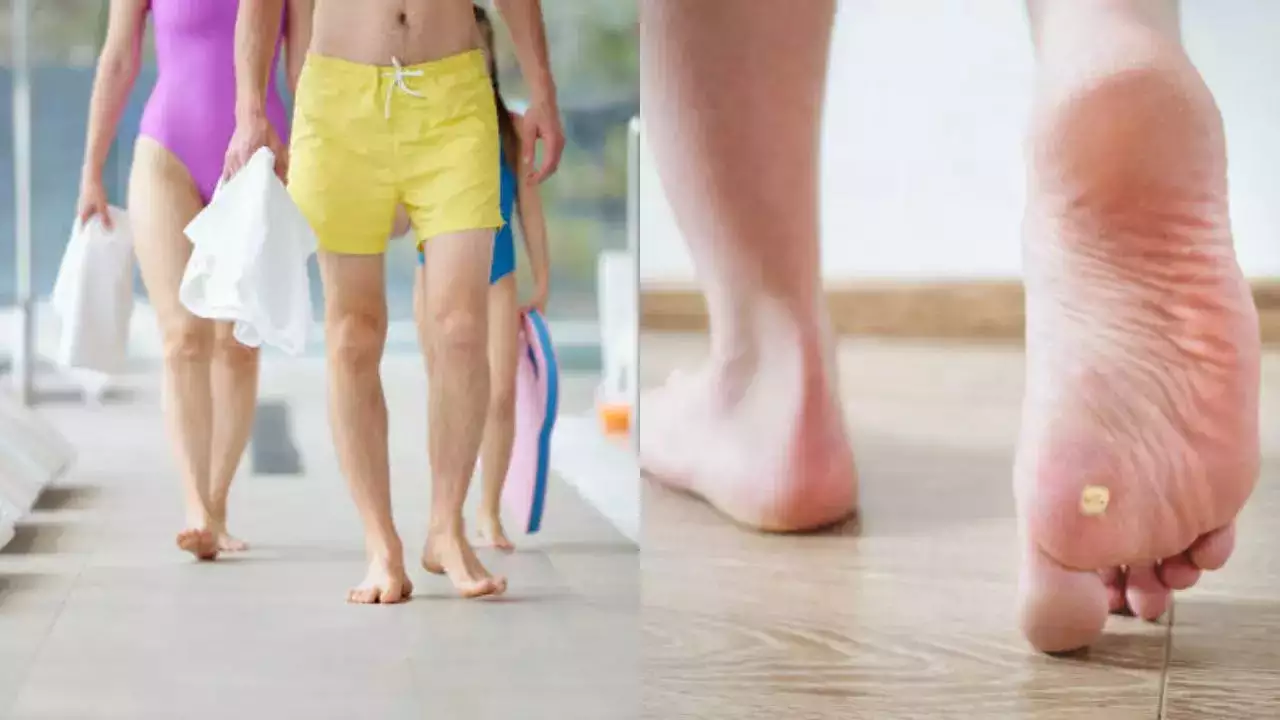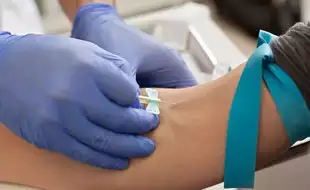Can Walking Barefoot Give You HPV, Cancer? Experts Say Yes; Here's How
Nov 30, 2024
News

HPV is a common virus with over 100 types that affects different parts of your body warts on your hands, feet, and face
HPV or human papillomavirus, is an STD—a sexually transmitted disease, an infection passed from one person to another through sexual contact. STDs are caused by bacteria, viruses, fungi, or parasites and can spread through vaginal, anal, or oral sex, heavy petting, or intimate physical contact. However, experts say even walking barefoot in a public area like gymnasiums or around swimming pools can cause the virus, which leads to warts and certain cancers.
HPV is a common virus with over 100 types, that affects different parts of your body, including strains that lead to warts on your hands, feet, and face. About 30 HPV strains affect your genitals, including your vulva, vagina, cervix, penis, and scrotum, apart from your rectum and anus.
HPV gets passed through skin-to-skin contact, most often during sexual activities. However, the plantar warts are formed with HPV in the outer layer of skin on the soles of the feet. The warts develop when the virus enters through tiny cuts, breaks, or weak spots on the bottom of the foot. If left untreated, warts can last from a few months to 2 years in children, and several years in adults.
"Can you get HPV without being sexually active,” Dr. Myro Figura, a Los Angeles-based Anesthesiologist said on his Instagram channel. "Walking barefoot in the gym is the most common way to get it. HPV is transmitted any time there's human-to-human contact and the most common presentation is a wart on your finger or a wart on your foot,” he added.
Dr. Figura said even though HPV is very common and more than 100 kinds of the virus exist, only a few of them cause warts on the feet. Other types of HPV are more likely to cause warts on other areas of your skin or on mucous membranes.
Transmission of the virus
Experts say everyone's immunity responds differently to HPV and all those who come in contact with it will not develop warts. Even those in the same family react to the virus differently.
According to Dr. Figura, the HPV strains that cause plantar warts are not highly contagious and so they do not spread easily by direct contact from one person to another. But it thrives in warm, moist places, so you might get the virus by walking barefoot around swimming pools or locker rooms. If the virus spreads from the first site of infection, more warts may grow.
What are the risk factors for warts?
Even though anyone can develop plantar warts, this type of wart is more likely to affect:
- Children and teenagers
- People with weak immune systems
- People who have had plantar warts before
- People who walk barefoot in areas where a wart-causing virus is common, such as locker rooms and swimming pools
Ways to prevent warts
To help prevent plantar warts:
- Avoid direct contact with warts, including your own. Wash your hands carefully after touching a wart.
- Keep your feet clean and dry
- Wear sandals or other foot protection when walking around swimming pools, in locker rooms, or in gym showers
- Do not pick at or scratch warts
- When using an emery board, pumice stone, or nail clipper on your warts, choose one that you don't use on your althy skin and nails.
Get Latest News Live on Times Now along with Breaking News and Top Headlines from Health and around the world.



